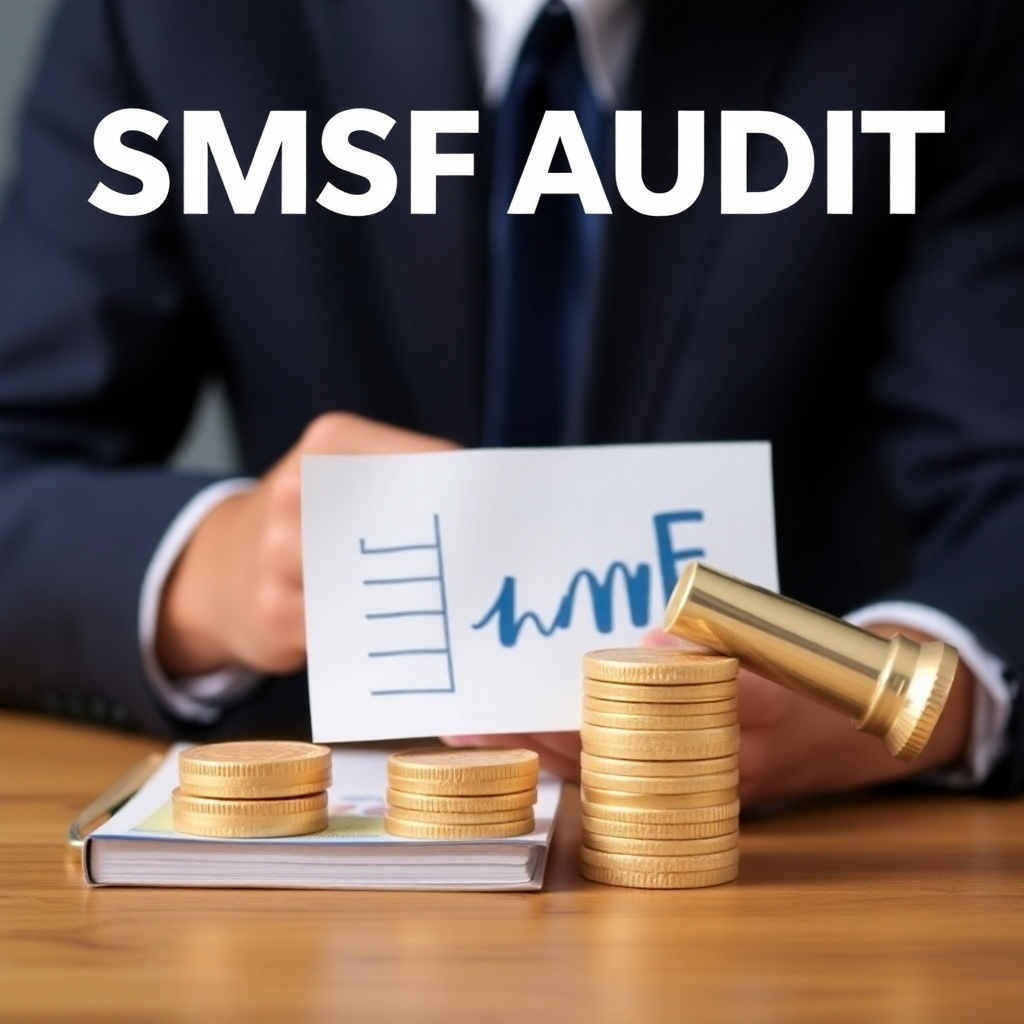
SMSF Audits in Australia: A Detailed Review
1. Introduction: What is an SMSF Audit?
An SMSF audit is an annual, mandatory check of a Self-Managed Super Fund's operations, required under the Superannuation Industry (Supervision) Act 1993 (SIS Act). It's conducted by an independent, ASIC-registered "Approved SMSF Auditor." The audit serves two primary purposes:
*Financial Audit: To provide an opinion on whether the fund's financial statements are presented fairly and accurately, in accordance with Australian Accounting Standards.
*Compliance Audit: To provide an opinion on whether the fund has complied, in all material respects, with specified provisions of the SIS Act and the Superannuation Industry (Supervision) Regulations 1994 (SIS Regulations).
The audit is a crucial part of the SMSF regulatory framework, designed to protect members' retirement savings and ensure the integrity of the superannuation system.
2. Why are SMSF Audits Necessary?
Legislative Requirement
It's mandated by law. Failure to conduct an annual audit can lead to significant penalties from the Australian Taxation Office (ATO), the regulator for SMSFs.
Protecting Member Benefits
The audit helps ensure the fund's assets exist, are appropriately valued, and are managed solely for the purpose of providing retirement benefits to members (Sole Purpose Test).
Ensuring Compliance
SMSFs operate under complex rules. The audit verifies adherence to investment restrictions (e.g., rules around related-party transactions, in-house assets, loans to members), administrative requirements (e.g., record-keeping, investment strategy documentation), and contribution/payment standards.
Maintaining Tax Concessions
Compliance with superannuation law is essential for an SMSF to retain its concessional tax treatment. Non-compliance identified during an audit can jeopardikan this status.
Trustee Accountability
The audit provides an independent check on the actions of the trustees, reinforcing their responsibilities and duties.
3. Who Conducts the Audit? The Approved SMSF Auditor
Registration
Only individuals registered with the Australian Securities and Investments Commission (ASIC) as "Approved SMSF Auditors" can conduct these audits. They must meet specific qualification, competency, and independence requirements.
Independence
This is paramount. The auditor must be independent of the SMSF, both in fact and appearance. This means they cannot audit a fund where they:
- Are a trustee or member.
- Are a relative or close associate of a trustee or member.
- Have prepared the financial statements unless specific ethical safeguards are in place (often requiring review by another professional within the firm or ensuring the trustee takes full responsibility for the accounts). The ATO and professional bodies strongly scrutinise arrangements where the same firm prepares accounts and audits them.
- Have other business or financial relationships that could compromise objectivity.
Competence
Auditors must maintain their professional knowledge and skills related to SMSF law, accounting standards, and auditing practices.
4. The Scope of the Audit:
The auditor examines various aspects of the fund's operations, including:
Financial Statements: Checking balances, transactions, income, expenses, and asset valuations against supporting evidence.
Compliance with SIS Act/Regulations:
Sole Purpose Test: Ensuring fund activities are solely for providing retirement benefits.
Investment Strategy: Confirming a documented strategy exists, is regularly reviewed, and considers risk, return, diversification, liquidity, and members' insurance needs.
Asset Separation: Verifying fund assets are held separately from trustees' personal or business assets.
Valuations: Ensuring assets (especially unlisted assets, property, collectibles) are valued at market value as required.
In-house Assets: Checking compliance with the 5% limit.
Loans & Financial Assistance: Ensuring no loans or financial assistance are provided to members or their relatives.
Borrowing Rules (LRBAs): Verifying compliance with Limited Recourse Borrowing Arrangement rules if applicable.
Contributions: Checking caps, eligibility, and documentation.
Benefit Payments: Ensuring payments (pensions, lump sums) meet conditions of release and minimum/maximum drawdown rules.
Record Keeping: Assessing the adequacy and accuracy of minutes, trustee declarations, and financial records.
5. The Audit Process:
Trustee Appointment
Trustees must appoint an auditor at least 45 days before the SMSF Annual Return (SAR) lodgement deadline.
Information Gathering
The auditor requests necessary documentation from the trustees or their administrator/accountant (e.g., financial statements, source documents, bank statements, investment records, minutes, trust deed, investment strategy).
Audit Testing
The auditor performs procedures to gather sufficient appropriate audit evidence (e.g., verifying bank balances, sighting asset ownership documents, testing transactions, reviewing compliance documentation).
Forming an Opinion
Based on the evidence, the auditor forms an opinion on both the financial statements and SIS compliance.
Issuing the Report
The auditor provides the trustees with an Independent Auditor's Report (IAR). This report contains: Part A: Financial Audit Opinion (unqualified, qualified, adverse, or disclaimer). Part B: Compliance Audit Opinion (unqualified, qualified, adverse, or disclaimer).
Reporting Contraventions (if necessary)
If the auditor identifies material breaches of the SIS Act/Regulations, or is concerned about the fund's financial position, they are legally obligated to report this to the ATO via an Auditor Contravention Report (ACR), usually within 28 days of finalising the audit report. Not all minor issues trigger an ACR, but significant ones (like illegal early access or loans to members) almost certainly will.
Trustee Lodgement
The trustees use information from the IAR to complete their SMSF Annual Return (SAR) and lodge it with the ATO.
6. Common Audit Issues & Contraventions:
1) Loans or financial assistance to members/relatives.
2) Breaches of the in-house asset rules.
3) Assets not being held separately (separation of assets).
4) Inadequate or missing documentation (especially investment strategy, minutes, trustee declarations).
5) Incorrect asset valuations (particularly property and unlisted investments).
6) Administrative errors regarding contributions or benefit payments.
Failure to meet the Sole Purpose Test.
7. Consequences of Adverse Findings / Non-Compliance:
If significant issues are found and reported:
ATO Scrutiny: The ATO will likely review the fund's situation.
Rectification Directions: The ATO may require trustees to rectify the breach.
Education Directions: Trustees may be required to undertake specific education.
Administrative Penalties: The ATO can impose monetary penalties on trustees personally (not payable from the fund).
Disqualification: Trustees may be disqualified from acting as a trustee for any super fund.
Non-Complying Status: In severe cases, the ATO can deem the fund non-complying, resulting in the loss of tax concessions and potentially taxing fund assets at the highest marginal rate.
Infographic 3: SMSF Audit Findings: What Happens Next?
8. Benefits Beyond Compliance:
A thorough audit provides:
- Assurance: Confidence for trustees and members that the fund is being managed correctly.
- Risk Identification: Early detection of potential compliance or financial issues.
- Improved Practices: Audit findings can highlight areas where record-keeping or processes can be improved.
9. Challenges &Considerations:
Cost: Audit fees vary depending on complexity, asset types, and the quality of records provided. Trustees should budget for this annually.
Finding a Quality Auditor: Focus should be on expertise, independence, and thoroughness, not just the lowest fee.
Record Keeping Burden: Maintaining compliant and audit-ready records requires ongoing effort from trustees.
Keeping Up-to-Date: Superannuation law changes, requiring trustees and auditors to stay informed.
10. Conclusion:
The annual SMSF audit is a cornerstone of the SMSF regulatory framework in Australia. It's not merely a "tick-box" exercise but a vital process for ensuring compliance, safeguarding member benefits, and maintaining the integrity of the SMSF sector. While it imposes obligations on trustees, a well-conducted audit provides significant assurance and contributes to the responsible management of retirement savings. The emphasis on auditor independence and the requirement to report contraventions directly to the ATO underscore its importance as a regulatory tool.
Infographic 2: SMSF Compliance Essentials: Trustee Checklist
Recommended Action Points
For SMSF Trustees:
Plan Ahead
Don't leave the audit to the last minute. Appoint your auditor well before the SAR lodgement deadline (allow at least 45 days, but preferably much more).
Prioritise Independence
Ensure your chosen auditor is genuinely independent. Discuss any potential conflicts (like the auditor also preparing your accounts) openly and understand the safeguards required. Ask potential auditors about their independence policies.
Maintain Meticulous Records
Keep accurate, organised, and complete records throughout the year. This includes bank statements, investment contracts, dividend/interest statements, expense receipts, minutes of trustee meetings, contribution records, pension calculations, and member details. This makes the audit smoother, faster, and potentially cheaper.
Document Everything
Keep your Trust Deed updated. Maintain a current, written Investment Strategy that reflects the fund's actual investments and circumstances, and review it at least annually (document the review in minutes). Document all significant decisions in trustee minutes.
Ensure Correct Valuations
Obtain objective, supportable market valuations for all fund assets annually, especially property, unlisted shares/units, and collectibles. Keep evidence of how valuations were determined.
Understand Core Compliance Rules
Familiarise yourself with key SIS rules, particularly regarding loans to members, related-party transactions, in-house assets, contribution caps, conditions of release for payments, and the Sole Purpose Test. Avoid prohibited transactions.
Prepare for the Audit
Gather all requested documentation promptly and provide it to your auditor in an organised manner. Be prepared to answer questions about the fund's operations and transactions.
Review the Audit Report
Carefully read the Independent Auditor's Report (IAR). Understand the opinions given and any issues raised (even minor management letter points).
Act on Findings
If the audit identifies contraventions or areas for improvement, take prompt action to rectify them and implement preventative measures for the future. Discuss the plan with your auditor or advisor.
Budget for the Audit
Include the audit fee as a regular operational expense in your fund's budget. Understand that complex funds or those with poor records will likely incur higher fees.
For Accountants/Administrators Assisting SMSFs:
Facilitate Timely Audits: Encourage trustee clients to engage auditors early.
Prepare Quality Information: Provide auditors with accurate, well-organised financial statements and supporting work papers/documentation.
Address Independence: Be clear about the separation between accounting/administration services and the audit function, especially if performed by different arms of the same firm. Ensure compliance with ethical standards (APES 110).
Educate Trustees: Help trustees understand their responsibilities regarding record-keeping and compliance before issues arise at audit.
Registered SMSF Auditors:
Maintain Strict Independence: Continuously assess independence requirements for every engagement. Document your assessment and any safeguards implemented. Decline engagements where independence is compromised.
Stay Current: Keep abreast of changes in SIS legislation, ATO rulings, accounting standards, and auditing standards relevant to SMSFs. Perform Thorough Procedures: Gather sufficient appropriate audit evidence to support both the financial and compliance opinions. Don't cut corners. Document your work adequately.
Communicate Effectively: Clearly communicate requirements to trustees/administrators. Discuss any potential issues identified during the audit promptly. Explain the implications of audit findings clearly in the IAR and management letter.
Report Contraventions Diligently: Understand your reporting obligations to the ATO via the ACR and fulfil them accurately and within the required timeframe.
Disclaimer: This information is general in nature and does not constitute financial or legal advice. SMSF trustees should seek professional advice tailored to their specific circumstances from qualified financial advisors, accountants, and registered SMSF auditors.
